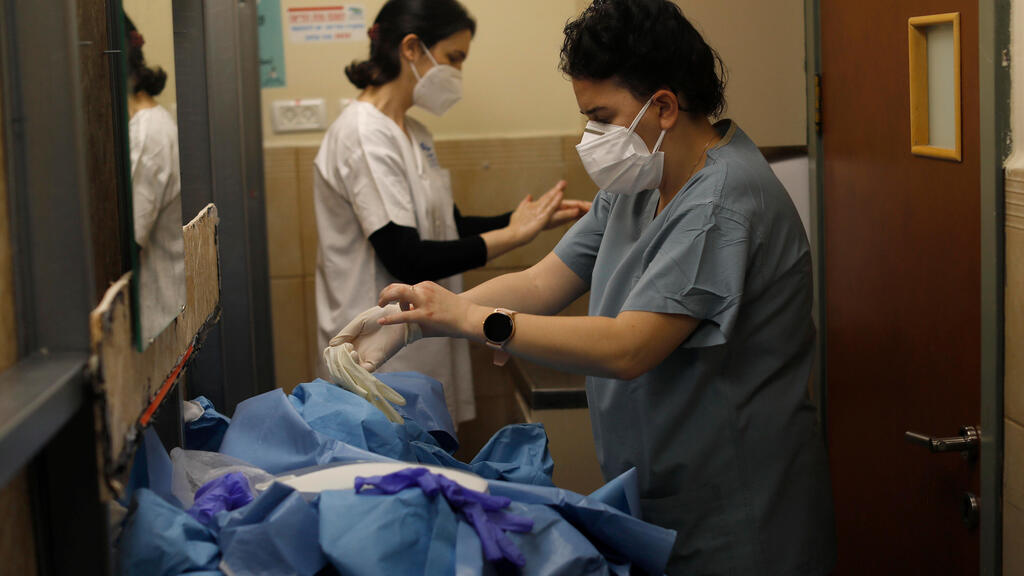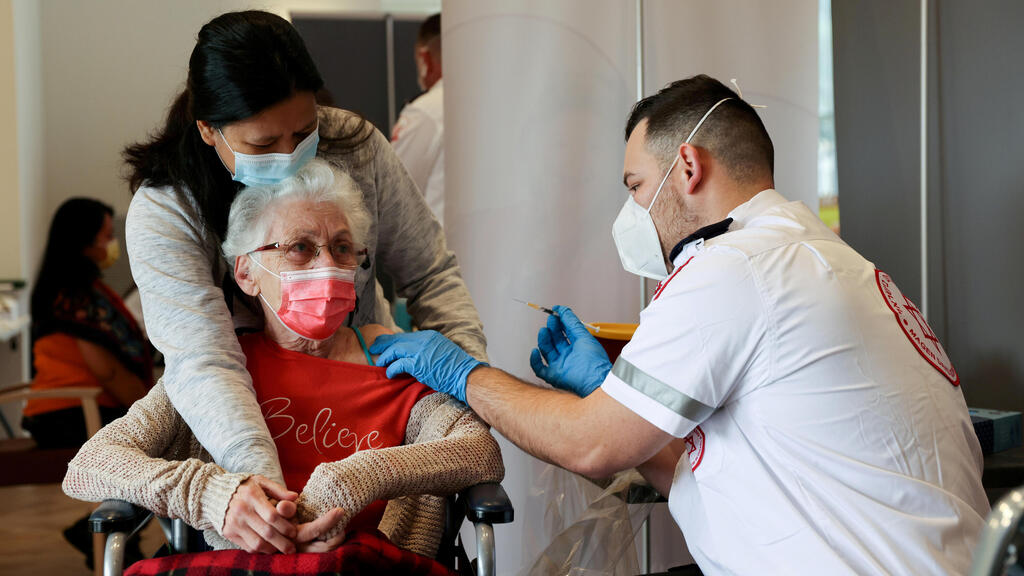A senior health expert said Tuesday the new subvariant of Omicron strain of coronavirus is not expected to bring another mass infection wave to Israel.
The World Health Organization said last month the BA.2 subvariant is beginning to replace Omicron's more common BA.1 subvariant in many countries across Europe, with Israel reporting 700 cases of the new strain so far.
Professor Eran Segal of the Weizmann Institute of Science told Ynet there is a stabilization in infection numbers, indicating a potential end to the current COVID wave. Segal has developed a coronavirus prediction model that is used by the coronavirus cabinet.
"There is 30% less confirmed cases today than there were at the peak of the wave, on January 24th," he said. "When it comes to critical illness, we are now a bit above the third wave's record, which was 1,200. On Monday, it stood at 1,222. But I think that we're seeing stabilization in these numbers as well, and soon enough, according to my assessment, we'll start to see a decline.
"I assume we'll start to see a decline towards this weekend. We'll still remain with more than 1,000-1,100 critically ill patients, still high, but at least we'll start to see a declining trend, which will continue."
Prof. Segal also said the new subvariant is "probably more contagious," but those who recovered from Omicron will be protected against the BA.2 strain, at least in the short term.
"Nearly half of the Israeli population will have been infected with Omicron by the end of this wave, I believe it will create effective protection against the variant."
When asked if the Omicron wave will be the last, he replied that it is "difficult" to predict. "The main question is how much time does history of infection with COVID offer protection against Omicron itself or new variants. We don't know the answer to this question, also because this variant is new, and because we saw there's been a decrease in vaccination rates. People were infected with Delta, and then again with Omicron three months later, so who can promise that there won't be another variant that will be contagious to those who were infected with Omicron?" he said.
"We know the vaccines are effective in protecting against critical illness. We also know that their effect is fading with time. Therefore, anyone who didn't receive the booster shot, needs to do so.
"If we see that critical illness is no longer at the extent that is was in previous waves, we could work towards living alongside the virus. Even if new contagious variants spring up, and confirmed cases emerge, they won't be as effected by the virus because of the protection of the vaccine."
Professor Cyrille Cohen, expert of immune system matters from Bar Ian University, also conveyed a comforting messages regarding the new variant. "When we look at most of these Omicron-family variants, we see that they aren't much worse than Delta and Alpha. They are even less harmful. Data from Denmark and other places tells us that the excepted hospitalization rate is 70-80% lower."




